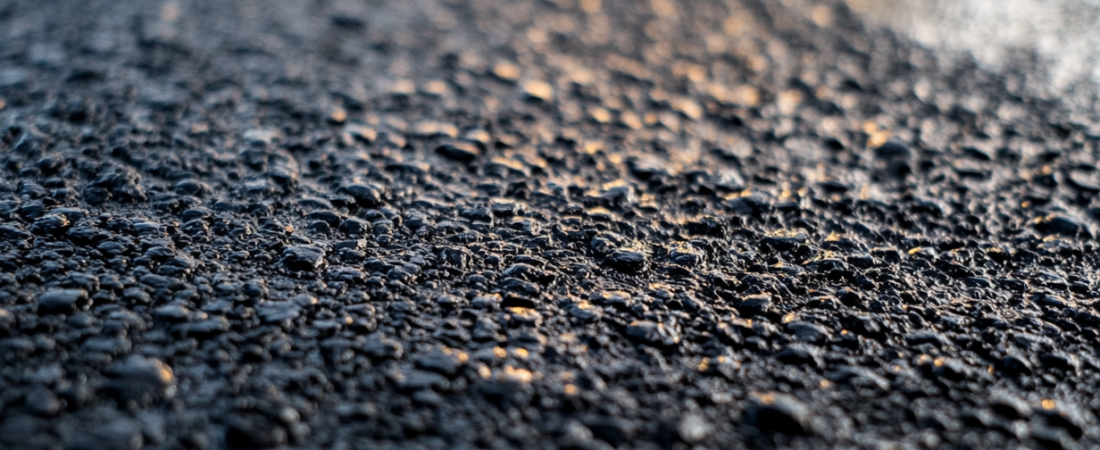Selecting the right material for your driveway is a significant decision that impacts not only your home’s curb appeal but also your maintenance requirements and budget for years to come. As someone who’s spent over three decades in the asphalt business, I’m often asked to compare asphalt and concrete driveways. Let me break down the key differences to help you make an informed choice for your property.
Initial Cost Comparison
When it comes to upfront expenses, there’s a clear difference between these two popular options:
Asphalt Driveways: $3-$7 per square foot installed Concrete Driveways: $5-$12 per square foot installed
“The good part about the asphalt is it’s less expensive to put in than concrete,” I often tell homeowners considering their options. This price difference can be substantial, especially for longer driveways. For a typical 600 square foot driveway, you might save $1,200-$3,000 by choosing asphalt over concrete.
However, initial cost is just one factor to consider when making a decision that will affect your property for decades. For a deeper understanding of how your driveway affects your property’s value, read our article on Two Ways a Well-Maintained Driveway Boosts Your Home’s Value.
Durability and Lifespan
Both materials offer impressive longevity when properly installed and maintained:
Asphalt Driveways: 15-30 years with proper maintenance Concrete Driveways: 25-50 years with proper maintenance
The wide range in these estimates comes down to several factors including installation quality, climate conditions, maintenance practices, and usage patterns. “If you seal coat your driveway, keep it maintained, keep the cracks filled, don’t let the water in through the cracks to freeze and bust up the asphalt… it doubles the life of the asphalt in most situations,” which is why proper maintenance is crucial regardless of the material you choose.
What many homeowners don’t realize is that, as I explain to clients, “The process by which you put that driveway in is the most critical. It’s not what you see on top. It’s what’s under the base under the concrete or the asphalt.” A properly prepared base will significantly extend the life of either material.
To learn more about our comprehensive maintenance services that can maximize the lifespan of your driveway, visit our services page.
Maintenance Requirements
The maintenance profiles of asphalt and concrete differ significantly:
Asphalt Maintenance:
- Requires sealcoating every 2-3 years
- Cracks should be filled promptly as they appear
- More regular maintenance but simpler repairs
- Generally more DIY-friendly for minor repairs
Concrete Maintenance:
- Requires sealing every 4-5 years
- Degreasing may be necessary to prevent staining
- Less frequent maintenance but more complex repairs
- Repairs often require professional help
“Generally, you can see it wearing away. You’ll see areas that’s black and then areas that’s still gray and kind of spotty. When you start seeing those, it’s getting close to time,” for asphalt resealing. Learn how to properly assess your driveway’s condition in our article How to Assess Your Driveway: 5 Signs You Need Professional Repairs.
Climate Considerations
Your local weather patterns should heavily influence your driveway material choice:
Asphalt Performance:
- Performs better in cold climates due to flexibility
- Less prone to damage from freeze-thaw cycles
- Softens slightly in extreme heat but recovers
- Darker color helps snow and ice melt faster
Concrete Performance:
- Performs better in hot climates
- More susceptible to cracking in freezing conditions
- Better heat reflection in summer
- Salt and deicing chemicals can damage the surface
Here in the Upper Cumberland region, we experience both hot summers and cold winters with freeze-thaw cycles. “Lot of people say that concrete lasts longer, you know, it’s so much better and in a lot of cases honestly it does do good. It lasts a long time but the process by which you put that driveway in is the most critical.”
In my experience, properly installed asphalt often performs better in our local climate, particularly if you’re concerned about winter maintenance and the effects of freeze-thaw cycles.
Installation Process and Timeline
The time from start to finish varies significantly between these materials:
Asphalt Installation:
- Typically takes 1-2 days from start to finish
- Can be used within 24-48 hours after installation
- Best installed in warm weather for optimal curing
- Less disruptive to your daily routine
Concrete Installation:
- Takes 3-7 days from start to finish
- Requires 7-10 days of curing before use
- Can be installed in a wider range of temperatures
- Longer disruption to home access
“My driveway is concrete at home,” a customer recently told me. I explained that while both materials have their place, the choice often comes down to how quickly you need to use the driveway and your tolerance for the installation process.
Appearance and Customization
Both materials offer different aesthetic qualities:
Asphalt Appearance:
- Classic black finish that creates contrast with landscaping
- Limited decorative options compared to concrete
- Develops a weathered, gray appearance over time without maintenance
- Edge definition tends to be less precise
Concrete Appearance:
- Clean, bright appearance that complements modern architecture
- Extensive decorative options (stamping, coloring, texturing)
- Maintains its appearance longer between maintenance
- Clean, defined edges possible
“Most people, especially at a residential, nobody ever comes out and says, ‘wow, my asphalt’s gonna last twice as long.’ They always come out and say, ‘wow, that looks great. Makes it look like my house got painted or something.’” For more insights on how properly maintained driveways add value to your property, visit The Detailed Science Behind the Value of a Residential Driveway.
Environmental Considerations
For environmentally conscious homeowners, consider these factors:
Asphalt Environmental Impact:
- Made from petroleum byproducts but is 100% recyclable
- Lower energy requirements for installation
- Darker color contributes to heat island effect
- Potential for oil leaching in the first year after installation
Concrete Environmental Impact:
- Higher carbon footprint during production
- Longer lifespan means less frequent replacement
- Lighter color reduces heat absorption
- Permeable concrete options available for better drainage
At J’s Driveways, we use environmentally responsible practices regardless of the material you choose, including proper disposal of old materials and sustainable sourcing where possible.
Return on Investment
When considering the financial impact of your driveway choice:
Asphalt ROI:
- Lower initial investment
- Higher maintenance costs over time
- Typically returns 50-70% of investment at home sale
- More frequent replacement may impact long-term ROI
Concrete ROI:
- Higher initial investment
- Lower lifetime maintenance costs
- Typically returns 60-90% of investment at home sale
- Longer lifespan improves long-term ROI
“If my price is a little higher, I’m not gouging you. I’m just giving you the best I can give you,” which is why I always recommend thinking about the long-term value rather than just the initial price. You can learn more about my approach to quality and value in my interview From Bucket to Business Empire.
Making Your Decision
The right choice for your driveway depends on several factors:
- Your budget (both initial and ongoing)
- Your climate
- Your aesthetic preferences
- Your planned length of homeownership
- Your willingness to perform maintenance
“I feel that I owe that to the customer,” which is why I always provide honest assessments based on each homeowner’s specific situation rather than pushing one material over another. If you’re still unsure about which option is best for your property, contact us for a professional assessment and personalized recommendation.
My journey from a 12-year-old helping with my first driveway to founding J’s Driveways has taught me that the best solution varies for each homeowner. You can read more about this journey in my interview From Childhood Passion to Driveway Expert.
Whatever material you choose, proper installation is the foundation of a long-lasting driveway. “The process by which you put that driveway in is the most critical. It’s not what you see on top. It’s what’s under the base under the concrete or the asphalt.” Never compromise on preparation work, as it will determine how your driveway performs for decades to come.
We specialize in residential asphalt maintenance throughout the Upper Cumberland region. We bring commercial-grade quality and attention to detail to residential driveways.

